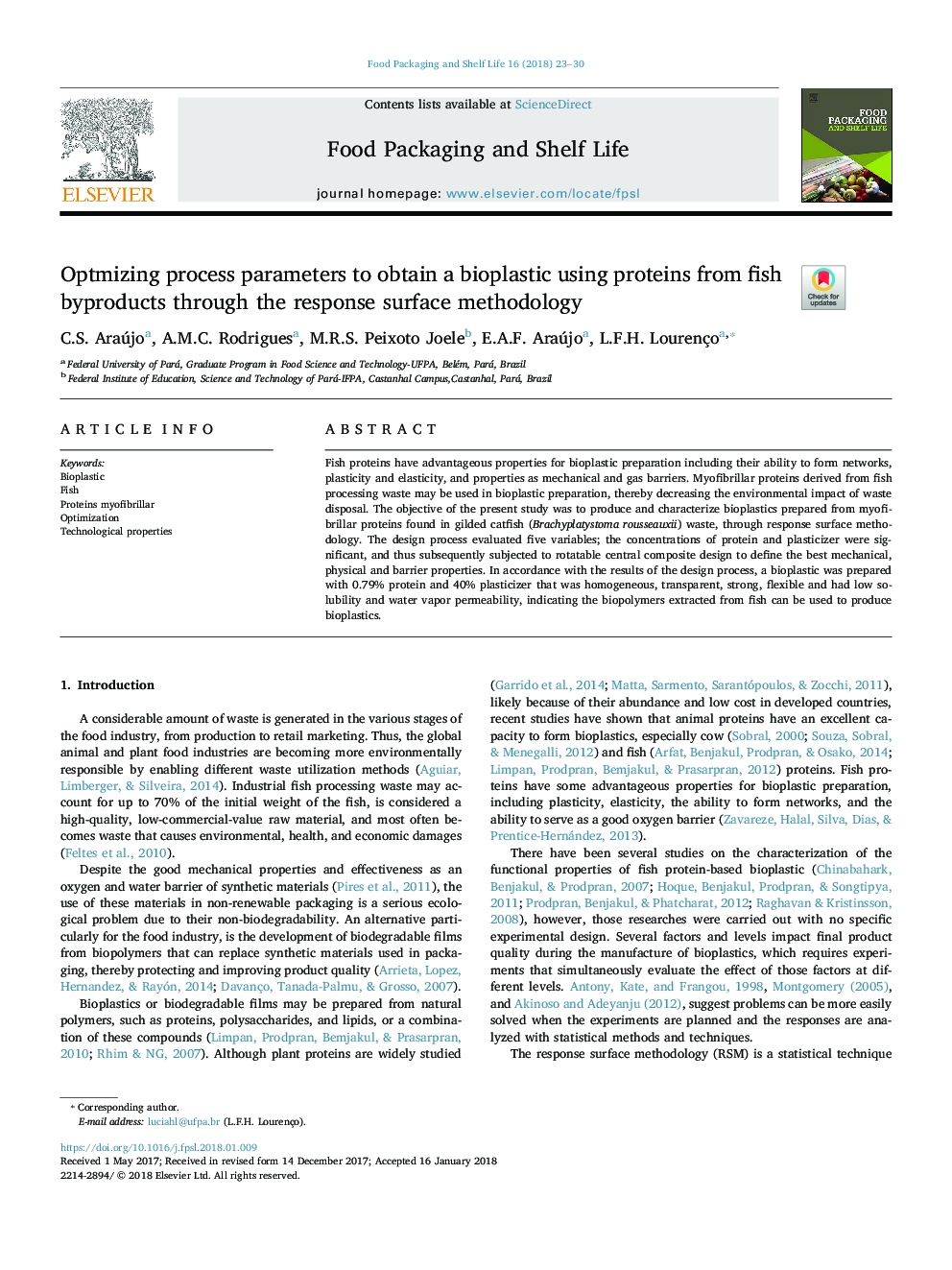| Article ID | Journal | Published Year | Pages | File Type |
|---|---|---|---|---|
| 6489168 | Food Packaging and Shelf Life | 2018 | 8 Pages |
Abstract
Fish proteins have advantageous properties for bioplastic preparation including their ability to form networks, plasticity and elasticity, and properties as mechanical and gas barriers. Myofibrillar proteins derived from fish processing waste may be used in bioplastic preparation, thereby decreasing the environmental impact of waste disposal. The objective of the present study was to produce and characterize bioplastics prepared from myofibrillar proteins found in gilded catfish (Brachyplatystoma rousseauxii) waste, through response surface methodology. The design process evaluated five variables; the concentrations of protein and plasticizer were significant, and thus subsequently subjected to rotatable central composite design to define the best mechanical, physical and barrier properties. In accordance with the results of the design process, a bioplastic was prepared with 0.79% protein and 40% plasticizer that was homogeneous, transparent, strong, flexible and had low solubility and water vapor permeability, indicating the biopolymers extracted from fish can be used to produce bioplastics.
Related Topics
Physical Sciences and Engineering
Chemical Engineering
Bioengineering
Authors
C.S. Araújo, A.M.C. Rodrigues, M.R.S. Peixoto Joele, E.A.F. Araújo, L.F.H. Lourenço,
